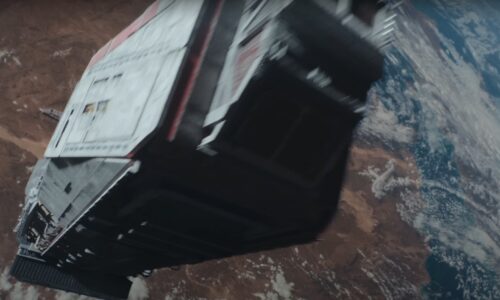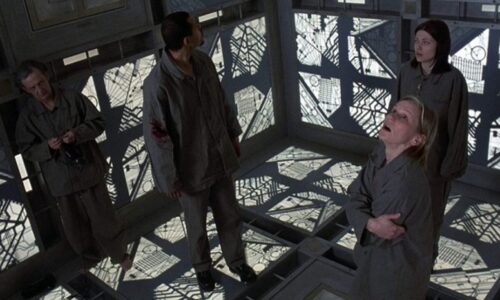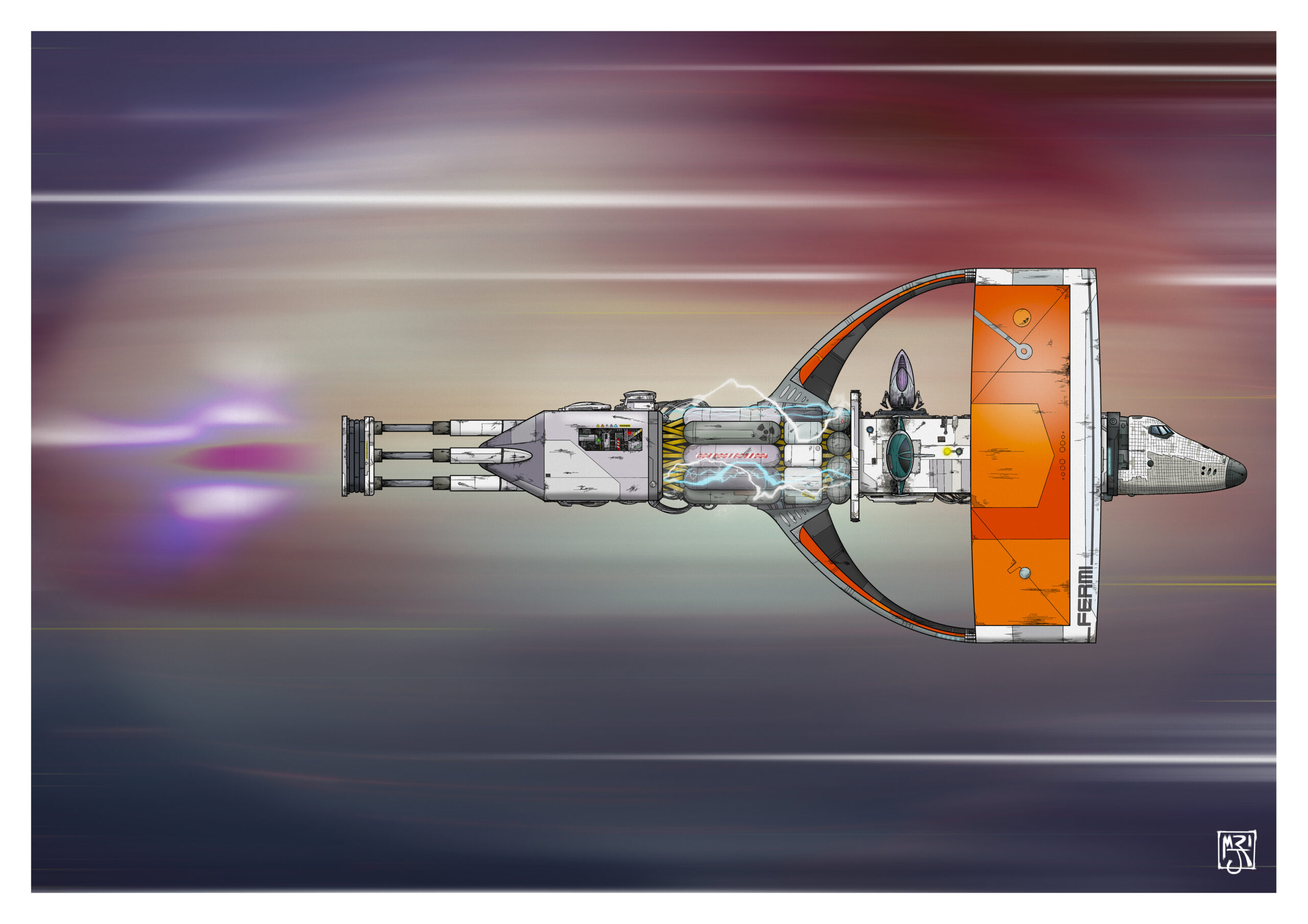
Why I Wrote Fermi’s Progress
- Uncategorized
- August 29, 2024
Flogging a book is difficult, particularly if you’re going the indie route and your marketing team consists of your tweets and your girlfriend dutifully retweeting them when asked. Ideally, it’s not about selling the book. It’s about selling the first couple of pages of the book, and then hoping that the story you have put years of your life into can capture other people the way it has captured you.
But it means you spend a lot of time talking about that hook, that thing that you hope will pique people’s curiosity just enough for the story to start working on your behalf, and paradoxically that can mean you never get to talk about what really excites you about a story, about the reasons it chews up your brain’s runtime while you’re waiting for the bus or doing the dishes or being the guy in that meme where his girlfriend thinks he’s thinking of other women but it’s actually he’s thinking about the Roman Empire, but it’s not the Roman Empire, it’s your book!
So, since this week I have thrown the first instalment of Fermi’s Wake into the world (which you can find at Amazon, or at Scarlet Ferret where you can also buy it as part of the Fermi’s Wake Season Pass) I figured I’d just throw caution to the wind and tell you why I love it, and its predecessor Fermi’s Progress (Also at Amazon and Scarlet Ferret) so much.
Reason One: Strange New Worlds
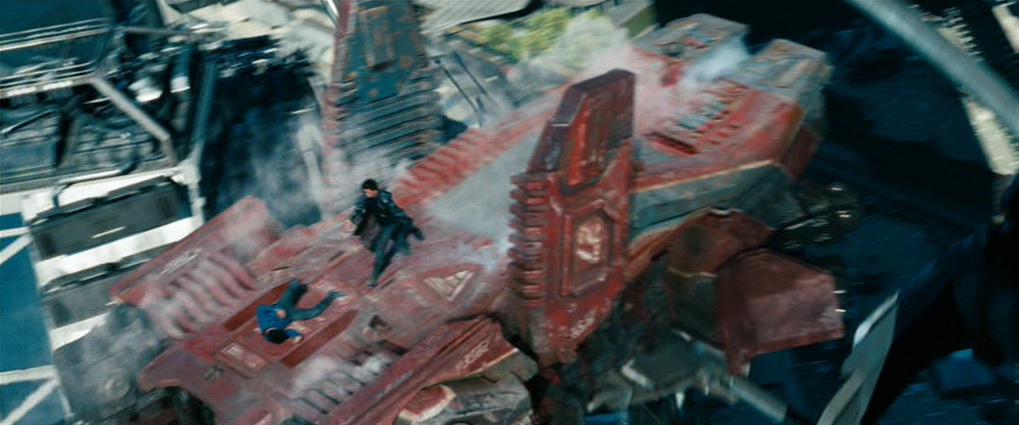
Fermi’s Progress has many origins, I can trace bits of it to stories I wrote and ideas I had percolating all the way back to when I was 12. But probably the one that most decisively summoned these stories into being was when I went to see Star Trek Into Darkness with the woman who I would soon fall in love and raise two children with.
It is probably the worst film to ever completely define the rest of my life.
As I watched Spock finally embrace his desire to punch stuff, and chase down the white, English, Khan Noonien Singh through a very modern-day looking San Francisco until his climactic punch up on the roof of a bin lorry, I found myself longing for a story about exploring alien planets.
This was in 2013, and at least in on-screen media, space was looking a bit sparse. Battlestar Galactica had been brilliant, but left all other sci-fi feeling that maybe aliens were a bit silly and childish. In 2014, the only new space show for years, the quickly-cancelled Ascension, turned out to not be a space show after all, but to actually be about a simulated space mission in a basement somewhere on Earth.
Even as new Star Wars, a Trek series and the Guardians of the Galaxy movies together sparked a renaissance in space-sci-fi, it was almost entirely divided between plucky space cowboys travelling between human colonies, or vast space empires fighting galaxy spanning battles.
So, I started writing Fermi’s Progress because I longed for stories about people landing on an alien planet, and then just figuring out what it was about. The Fermi’s deadly Alcubierre drive served two primary functions – one, it neatly let me off the hook for any Prime Directive hand-wringing, two, it meant that at the end of each story I got to clean to etch-a-sketch and start fresh with the next one.
I remembered some quote (that I’ve never been able to find again) that Mike Mignola wrote Hellboy so that he could draw lots of monsters. I wrote Fermi’s Progress so that I could write lots of weird aliens.
Reason Two: We Must Maintain the Machine That Is Trying to Kill Us
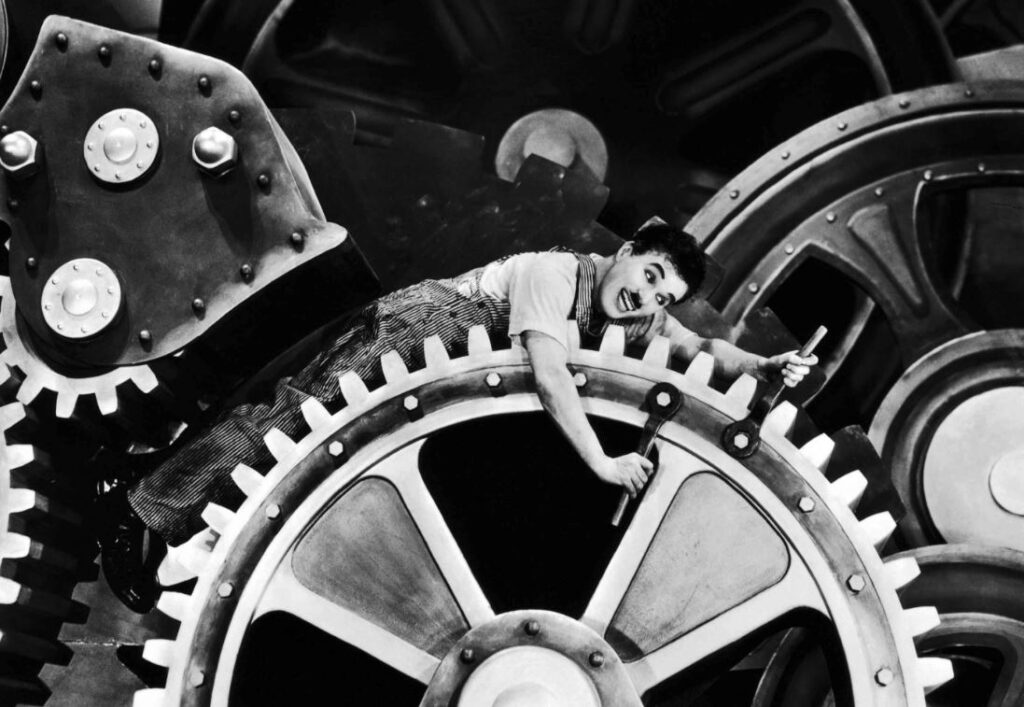
A thing about writing is that often you don’t really know what you’re writing about until after you’ve written it – sometimes long after. When I wrote my first published novel, Mark II, I largely thought I was writing about clones. When I read it now, I want to take that version of Chris and go buy him a milkshake, give him a hug, and tell him there’s stuff he really needs to process
With Fermi’s Progress, I figured out what I was really writing about towards the end of the third draft and polish. That feeling of working to maintain a machine, because you depended on it even as you knew it was destroying worlds. That felt like it was touching a raw nerve.
Our phones operate on chips made from materials that bloody wars have been fought over. Our soft drinks are manufactured by people who shoot trade unionists. When we switch the lights on we are nudging the Earth a little bit closer to climate collapse. And what do we do? We go to work, helping to make money for other people who are contributing to these problems even more directly and severely.
What can you do in that situation? How can you continue to have a picture of yourself as a decent human being when your every action sends out so many ripples of harm?
Of course, the fun thing about writing a sequel is that you are continuing to write the story after you have figured out what it is about. I won’t promise Fermi’s Wake has any answers to these questions, but I hope it has something to say about them.
Reason Three: Chasing the Wrong

Subtlety is not really one of my great gifts as a writer. In my use of subtext, I count Garth Merenghi among my contemporaries. And in Fermi’s Progress I don’t think there is a single more “Look to camera and directly deliver the message of the story” moment than when one of the Fermi crew is asked what it’s like exploring alien worlds. They answer:
“I’ll tell you what it’s like. It’s a constant, never-ending stream of opportunities to be wrong. Every time you think you’ve got a handle on something, it slips away. Right, wrong, who you are, what your place is, you’re only ever a short distance from finding out why the exact opposite is the case, and your universal truths are just a local custom.”
That feeling is ultimately what I come to science fiction for. The moment when you realise the Planet of the Apes has been Earth all along, that the new space station you’ve been gifted is actually a giant jellyfish, that you are in the Matrix and the terrifying monster you’ve been chasing is just another lost soul trying to say hello. That sense of realising the candlestick is actually two faces.
This is the feeling I wrote about when I did the blog to promote my Star Trek Adventures: Megafauna mission briefs pack, and it is still the feeling I’m pursuing whenever I write, read or watch science fiction.
So while first and foremost the stories across Fermi’s Progress and Fermi’s Wake are about cool alien planets, I hope that each story has something that will induce that slight sense of existential wrong-footedness, that sense that while the world looks the same as it did five seconds ago, you know it isn’t.
It is probably the most arrogant ambition you can have in a genre whose lineages of influence and plagiarism are so clearly drawn, but I really hope I can show you something new.
Fermi’s Wake: D & Deception is available at Amazon and Scarlet Ferret, where you can also buy the Fermi’s Wake Season Pass.
Fermi’s Progress is also available at Amazon and Scarlet Ferret


